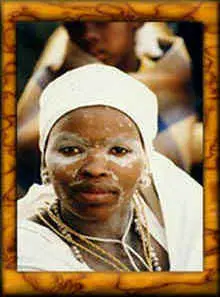The land of the Pondos is full of stories that remind us of times gone by. Most of these tales are kept only through their telling but some have been recorded.
Somewhere between 500 and 1200 years ago Bantu speaking people settled all along the East coast of Southern Africa down to what is now known as Port Elizabeth. This area was also home to nomadic San and Khoi people. Many of the Khoi were incorporated bringing with them the three characteristic clicks that are found in the Xhosa language today.
This region is geographically referred to as “Eastern Pondoland”.

The amaPondo are one of 12 Xhosa speaking tribes. The Pondos and other Xhosa speakers along the coast had their first contact with Europeans in the form of shipwrecked sailors. Strange light-skinned apparitions would occasionally be left with the white foam on the beaches after a big storm. The Xhosa word for “Whities” is “Abelungu” – meaning just that – ‘foam from the sea’. Some of the shipwrecked stayed – the clan name ‘Umlungu’ often recording the history of their children.
Trade between the amaPondo and other Xhosa speakers – where Xhosa tobacco and cannabis was traded for metal – has been dated to 400 years ago. Trade between the Xhosa and Boers was recorded 300 years back.
Around the late 1700’s the pressure for land began increasing. For the Xhosa speaking tribes there were the British to the South, Boers to the East and other Bantu speakers from the North. Those from the North were pushed down by the series of battles and migrations that were set off by the rise of Shaka and the Zulu state. The war with the British and the Boers continued sporadically for 60 years. By the early 1850’s relations between the Cape Colony and the so called ‘Territories’ had settled down to an uneasy peace. This standoff was tragically settled by the ‘cattle killing’ of 1856. On the advice of a diviner, people were ordered to eat all their cattle and consume or destroy all their crops. All those who disobeyed together with all whites were to be swept into the sea by a strong wind on the 18th of February 1857.
At this time there was an abundance of cattle and grain, but with the resulting famine, resistance to the colonials crumbled. In the same year the British introduced a poll tax. By 1858 all chiefdoms except those of the Mpondo had submitted to colonial administration.
Geographically remote, tucked away in the far NE of the ‘Territories’ the Pondos were furthest away from the wars with the colonists. They did not take part in the cattle killings of 1856 and were exempt from the poll tax of ’57.
The Pondos had been effected by the Mfecane – the wars and migrations set off by the rise of Shaka and his Zulu empire. In 1828, during the reign of Faku (paramount chief of the Pondos), they lost their land and cattle east of the Mzimvubu (river) to many hundreds of people who were fleeing Shaka’s impis (warriors). It is during this retreat that Faku reorganised his military forces and intensified raiding, hunting, agricultural and trade enterprises. By 1843 the Pondos had replaced their herds of cattle and Faku represented many people living south of the Zulu kingdom, commanding tremendous power. The following year Faku signed a treaty with the Cape Colonial government which recognised and protected his authority. Many groups of people joined his empire as a means of protecting their land from the ‘trekkers’ in Natal who were keen to expand their own borders.
Through various political, economic and religious pressures the tribespeople were forced to accept the annexing of Pondoland to the colony in 1894.
For 70 years Pondoland fell the under the Cape Provincial Administration – first under British colonial government and then from 1948 under the Nationalist party government. The ‘separate development’ policies (Apartheid) of H.F. Verwoerd resulted in the ‘awarding’ of ‘self-government’ to an area known as the Transkei in 1963 (The area known as the Transkei incorporated many, though not all, of the Xhosa speaking tribes.) This was followed by ‘full independance’ in 1976.
After the first democratic elections, the Transkei as an entity fell away, and the region became part of the vast and diverse Eastern Cape. Despite this incorporation, Transkei in general and Pondoland in particular remain discrete regions in many ways.
Many people still lead lives not much different from those of their ancestors during the 16th and 17th centuries. Traditional forms of land use and government are still practised, and while this may be partially explained by the shortage of facilities and capital during colonial and apartheid governments, the resilience of many craft, religious and other cultural practices also suggests a determination on the part of many rural people to retain elements of their heritage. This does not mean that modern ideas and innovations are rejected; instead they are incorporated and employed alongside traditional methods.”
Janet Hayward (Research in progress)
Back to Port St Johns History